Mark Tremonti: my top 5 tips for playing live
Alter Bridge man on how to slay on stage
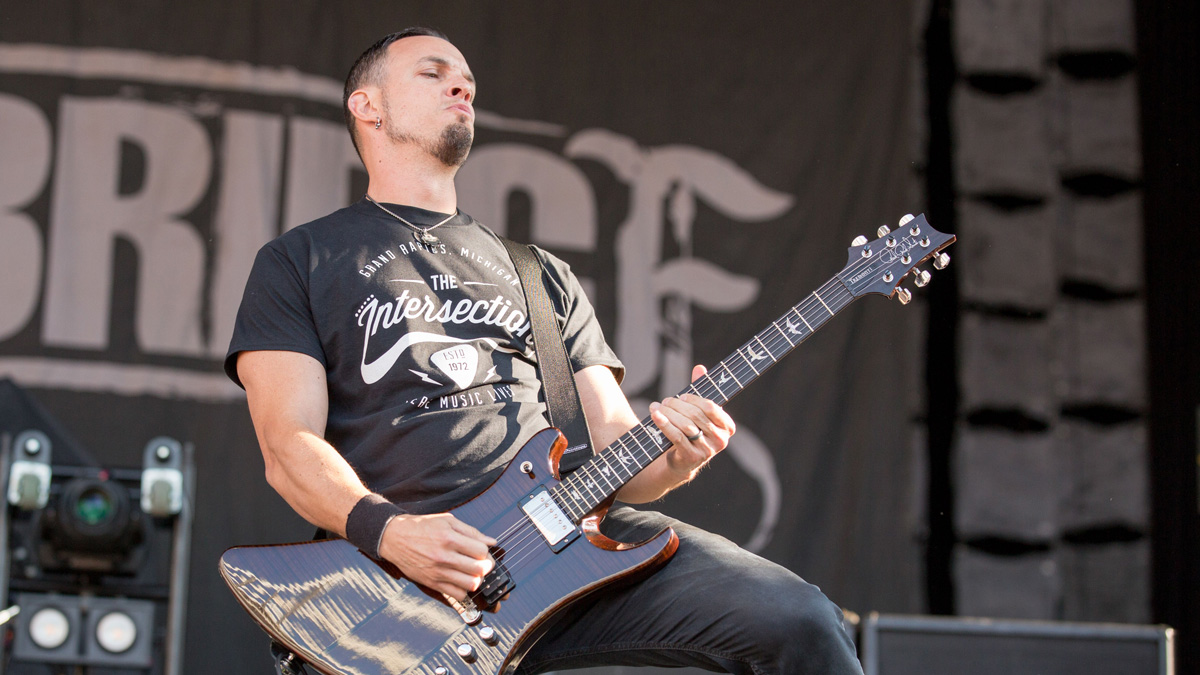
Marking a milestone
“Every time we hit a new benchmark in our career we try to capture that moment,” says Mark Tremonti, discussing Alter Bridge’s incendiary new live album.
The record certainly captures a high point for Tremonti and co - Live At The O2 Arena showcases, as the name suggests, the band’s 2016 sold-out performance at the iconic London venue.
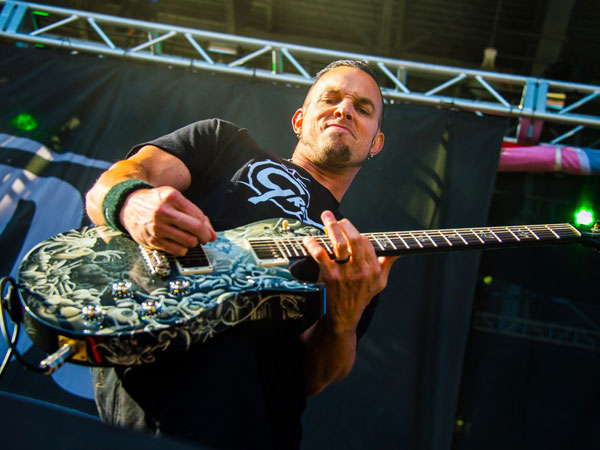
“The O2 was the biggest headlining show we have done to date,” Tremonti says. “We’re constantly trying to move up to that next level. One day, we hope to headline Download Festival. We’ve been one band away from that for a few years, so that is the next benchmark for us.”
Pulling a crowd of 20,000 into the O2 shows just how far Alter Bridge have come, but this is a story fuelled by hard work and stellar albums, rather than hit singles and overnight riches.
“We are definitely not an overnight success, unless you call 13 years overnight,” the guitarist laughs. “There has been a lot of hard work.”
It's been a hard slog built on the band’s workaholic approach to touring. So, who better to share advice on how to play a blinding live show?
Live At The O2 Arena + Rarities is out on 7 September via Nuclear Blast.
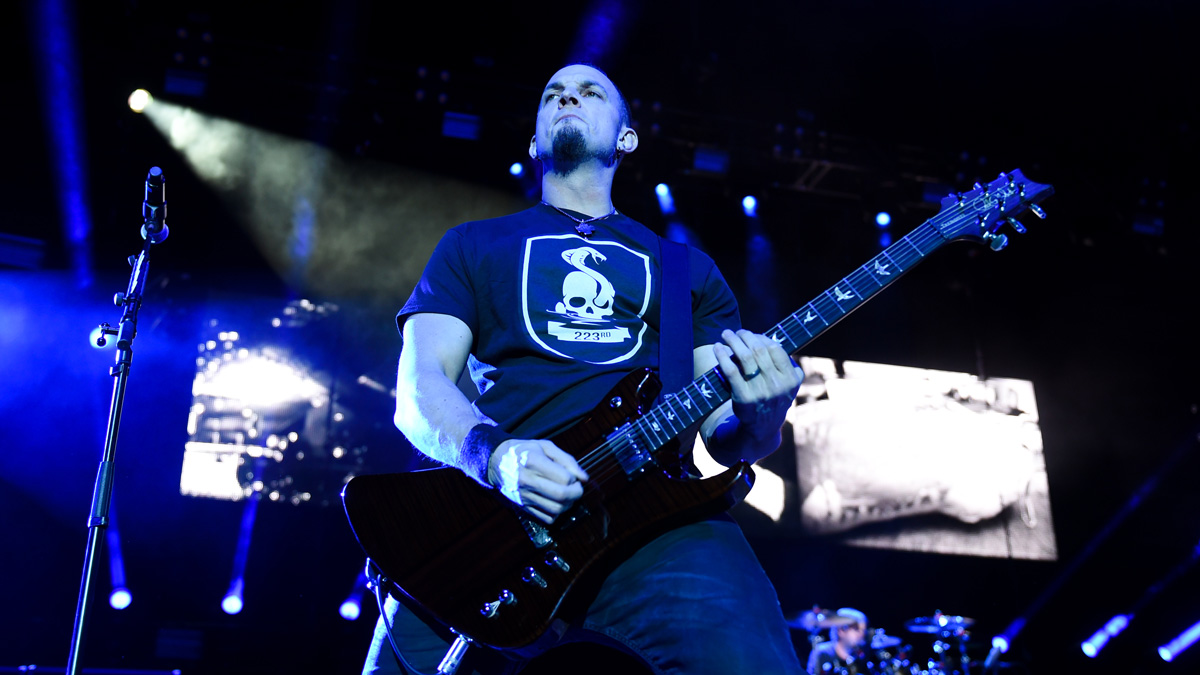
1. Get your hands warmed up
“It makes sense to me to play the solos you’re about to play on stage before you go on.
“It's going through the motions before you go on stage, and if you do that, then to me it seems to flow much easier.
“Early in a tour, I will run through a few solos and parts before we go on. As the tour goes on, you seem to be always warmed up, so I can play whatever I am working on at the time as a warm-up.
“Sometimes I like to start off with improvising for two or three songs to just get loose, and then I work on whatever technique I am into at that time.
Early in a tour, I will run through a few solos and parts before we go on
“After a show, I don’t have a set warm-down; I just write. I am either full into guitar mode or full into guitar-writing mode. Sometimes, my guitar playing goes way downhill when I’m in songwriter mode because I’m not challenging myself as much on guitar.
“I am much more excited about writing a song than I am about learning some crazy thing on guitar. I try to balance both. When I’m on tour, I have to keep up with having a guitar in my hand.
“I try to write at night and practise guitar during the day. I just find a place to sit on my own and write. If I‘m in a hotel room, I might just grab a [Roland] Micro Cube and write all day. I love to write when I am completely alone, and when I’m on tour I have a lot of alone time so I use it to write.
“It’s not as good as when I’m at home with all of my amps and I can sing, but it still works. That’s the biggest thing: writing in a hotel means I need to sing in my quiet falsetto voice because of my neighbours in the next hotel room.”
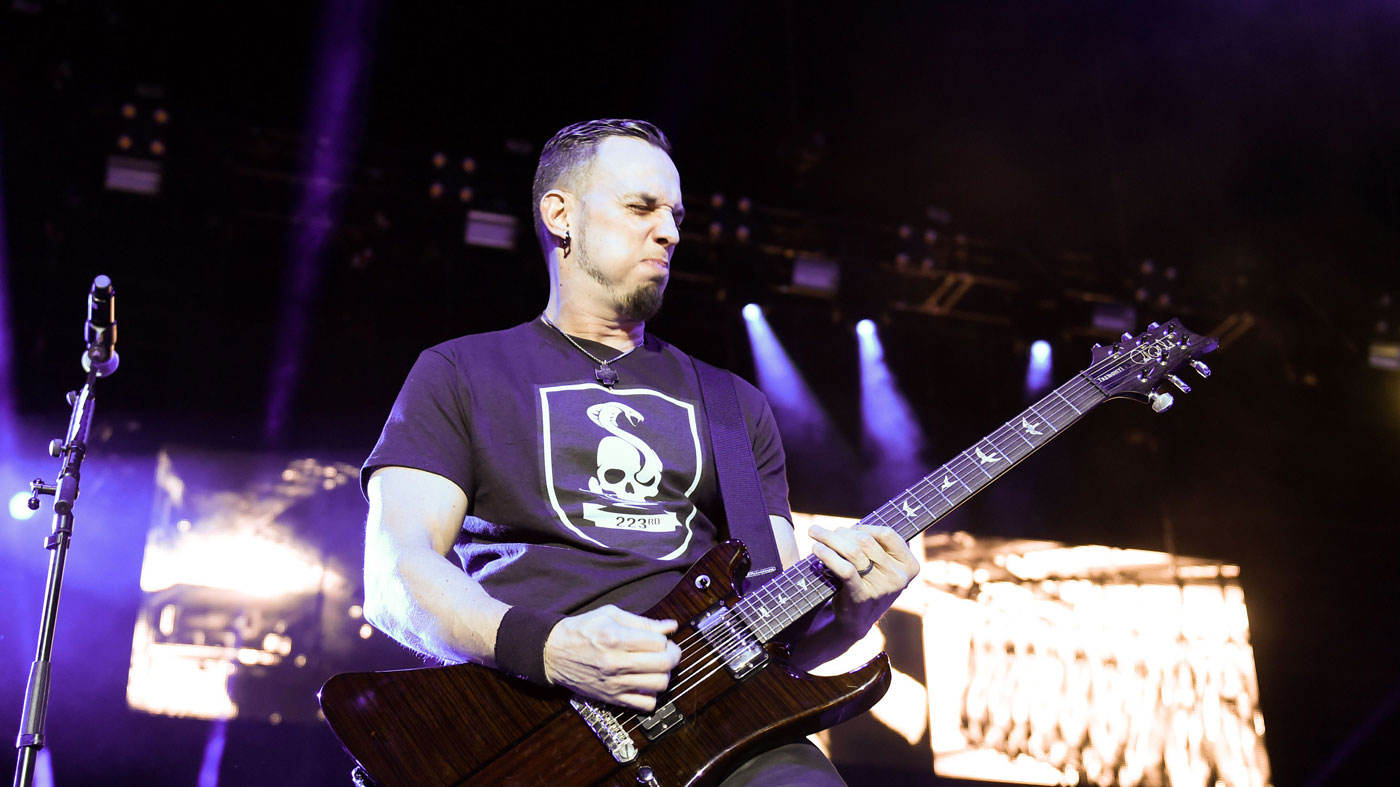
2. Pace your set
“Pacing your set is very important. You need to keep the flow going.
“You don’t want to start with a ballad. We try to edit the live set so that it is the most energetic set that we have when we're playing at a festival. For our own shows, we can make it a little more dynamic.
“With shorter sets, it's better to keep the energy up. On a festival, we will still play Blackbird, which is a departure from that theory, but we feel like we’re not Alter Bridge if we don’t play that song.”
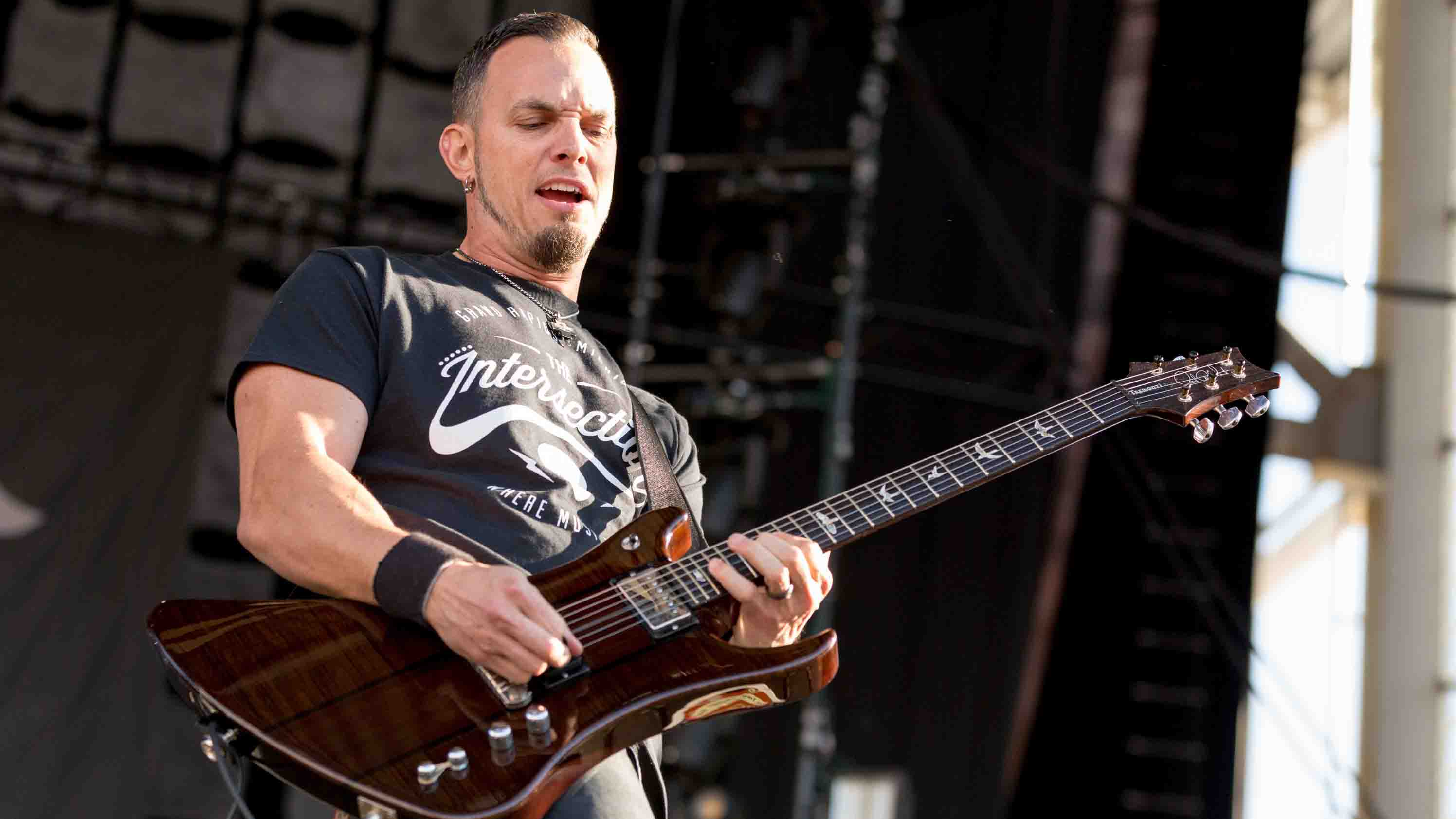
3. Know that sometimes you have to just hope for the best
“Ahead of a new album cycle tour, we will spend four or five days working on rehearsals.
For a festival we won’t get a soundcheck, we will just step out on stage and hope for the best
“But every tour after that, there really is no rehearsal. We just soundcheck ahead of the show and then go for it. For a festival, we won’t get a soundcheck; we'll just step out on stage and hope for the best. That is just what you have to do.
“Our techs are very good at knowing what we like to hear on stage, so they will take care of that and have it set up just the way we like it. Other than a few tweaks in the first couple of songs, it's usually pretty close to how we like it.
“I just have two 4x12s with my guitars directly behind me, and then I just have my vocals, and then at the side we have the other guys. I know where I'm at - if I need to hear myself I know where to stand. I spend most of my time out in the wings just hearing everybody.”
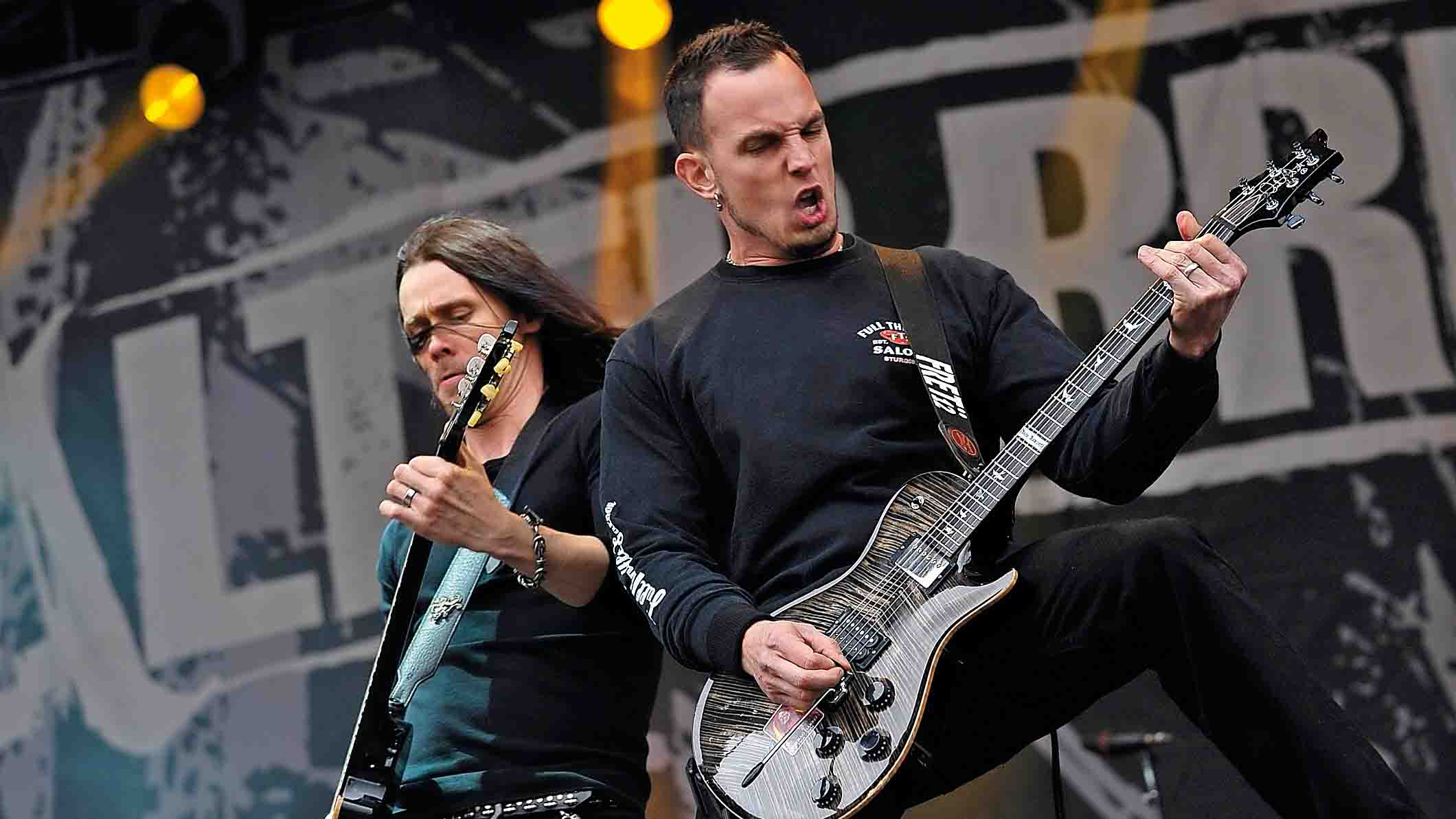
4. Find the right personalities
“The personalities are so important when you’re on tour.
“When you’re starting a band, a lot of the time you're picking from the people that live in the same town as you. You might have one guy that after a couple of years might turn into that guy that you don’t want to be in a band with.
“You need to have a good filter as far as personalities go when you’re starting a band. Once you sign that record deal and you have all of these things in place, it's very hard to switch.
Having a good person is more important than having the best guitarist or the best drummer
“Having a good person is more important than having the best guitarist or the best drummer. You don’t need to be the best guitar player; you just need to have a thing that works for you.
“Look at a band like Black Flag: it wouldn’t work without that style of guitar player, but if you put him in Metallica that wouldn’t work.
“Also, mentally it's tough on the road. The road is a lonely place. You’re on a bus with a bunch of people, but you end up doing your own thing a lot. If you spend five weeks away without your family, mentally, it can get depressing.
“You’ve got to watch funny movies, play guitar and hang out with your buds all that you can. You have to be on the road these days, otherwise you’re not going to have a career.
“A band like Sixx:A.M. came out and put out a record without touring. When they put out a record that they did tour, that was when they started growing. You can’t grow without touring. You have to balance your home life and your touring life.”
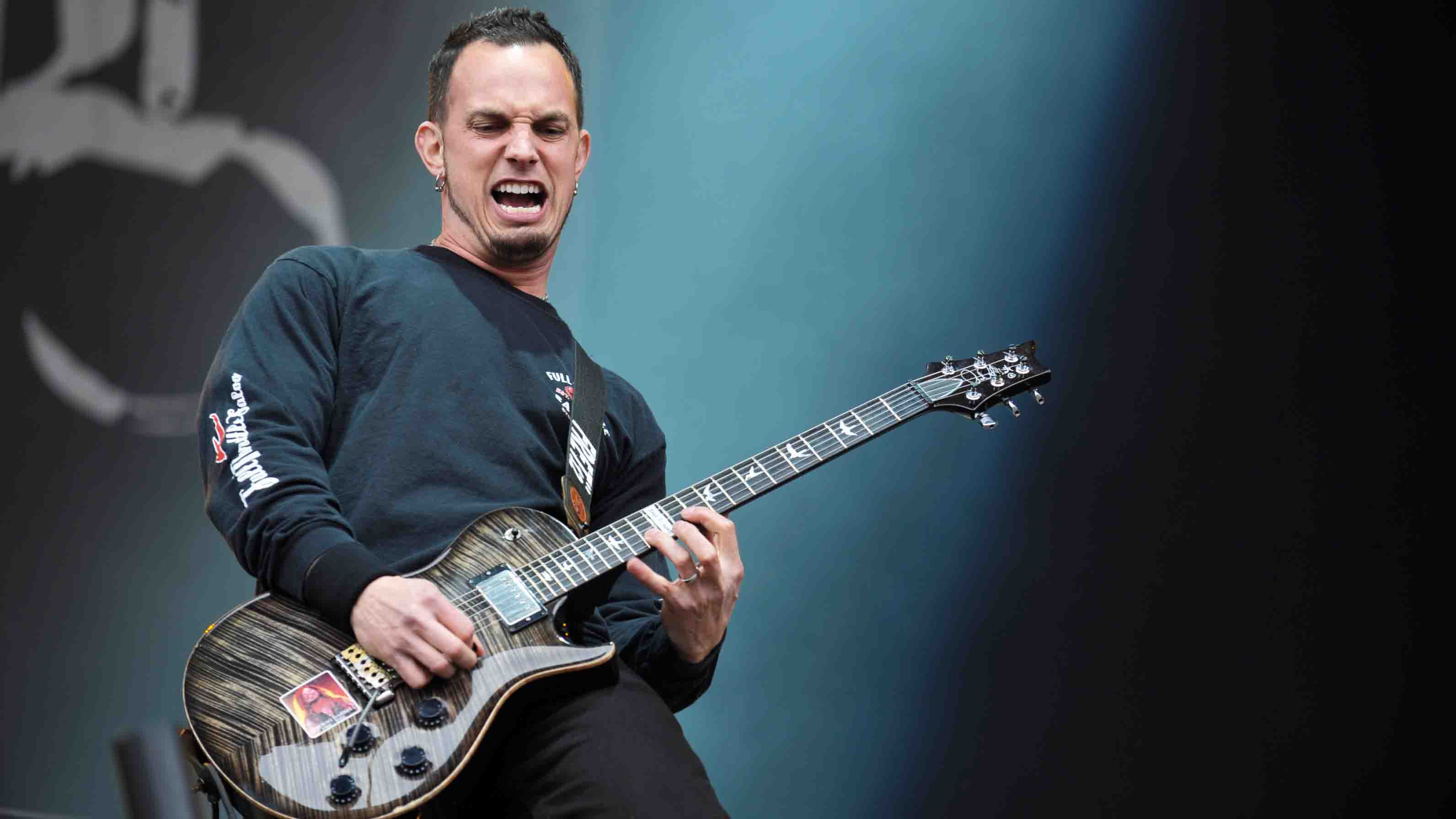
5. Experiment with gear beforehand
“I have always been a Mesa/Boogie guy when it comes to live. I recently bought a huge bunch of amps off eBay. I’m trying to find the old Rectifiers.
“I found a Revision, the Blackface Revision F and I really like that. I have a Rectifier as well, with a smaller transformer so it's a little punchier, and when you combine those it has got the round, warm sound of the Revision F, and then the Rectifier is punchier, so together it's a great combination.
“But something happened to my Rectifier a couple of days ago. Now, I’m using the PRS Archon in the Rectifier's place. The Archon and the Blackface Revision F sound awesome for the lead stuff but not quite as angry for the rhythm stuff.

“The rig is always evolving. I'm an amp fanatic, so I go from amp to amp to amp. I'm constantly in search of that perfect combination. I’m a huge collector of amps.
“I have my signature guitar, and I don’t stray too far from there. I have some Strats and some Teles because they're such a different sound, but for the most part, I like to experiment with my own guitar and a tonne of amps. I must have 40 amps. They are my addiction.
“With my guitar, I found that it needed to have weight. When PRS first approached me, they sent me the McCarty, which is much lighter - the switches are configured differently in a different area where you had the five-way switch or the three-way switch on the bottom, and I needed to have it further up so I could go quickly from the cleans to my dirties.
“My pickups needed to be more… when I do the palm-mute stuff, I like it to be tight and pronounced and not round, and then I like the other pickup to be a little rounder. We carved the neck just right.
“PRS had a rounder neck on a lot of their earlier models; mine is a little flatter but not like an Ibanez - it’s somewhere in between. I grew up on a Les Paul Studio and we did the neck sort of like that. But we’re always changing the finishes, the tuners and all of that.”
Rich is a teacher, one time Rhythm staff writer and experienced freelance journalist who has interviewed countless revered musicians, engineers, producers and stars for the our world-leading music making portfolio, including such titles as Rhythm, Total Guitar, Guitarist, Guitar World, and MusicRadar. His victims include such luminaries as Ice T, Mark Guilani and Jamie Oliver (the drumming one).
